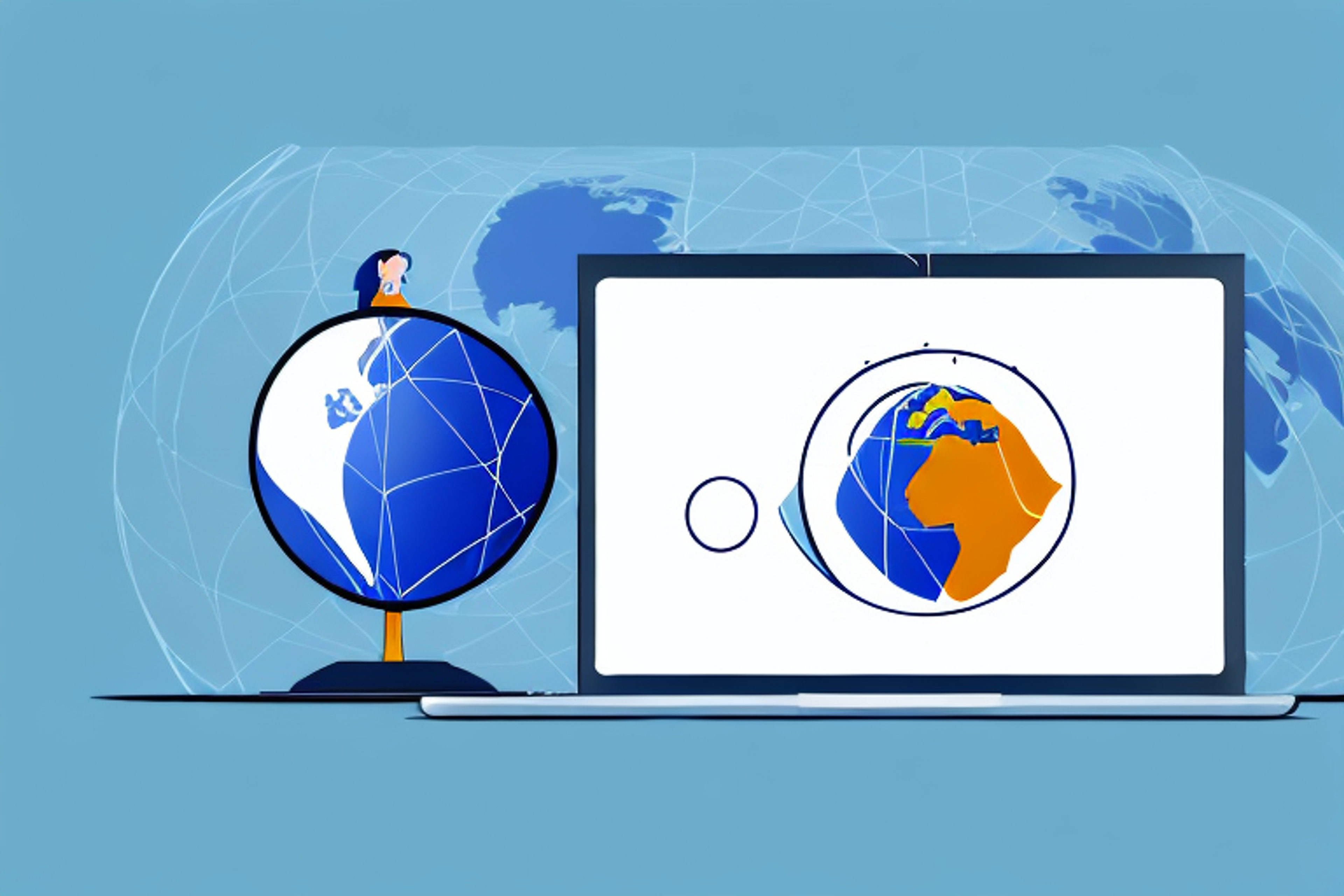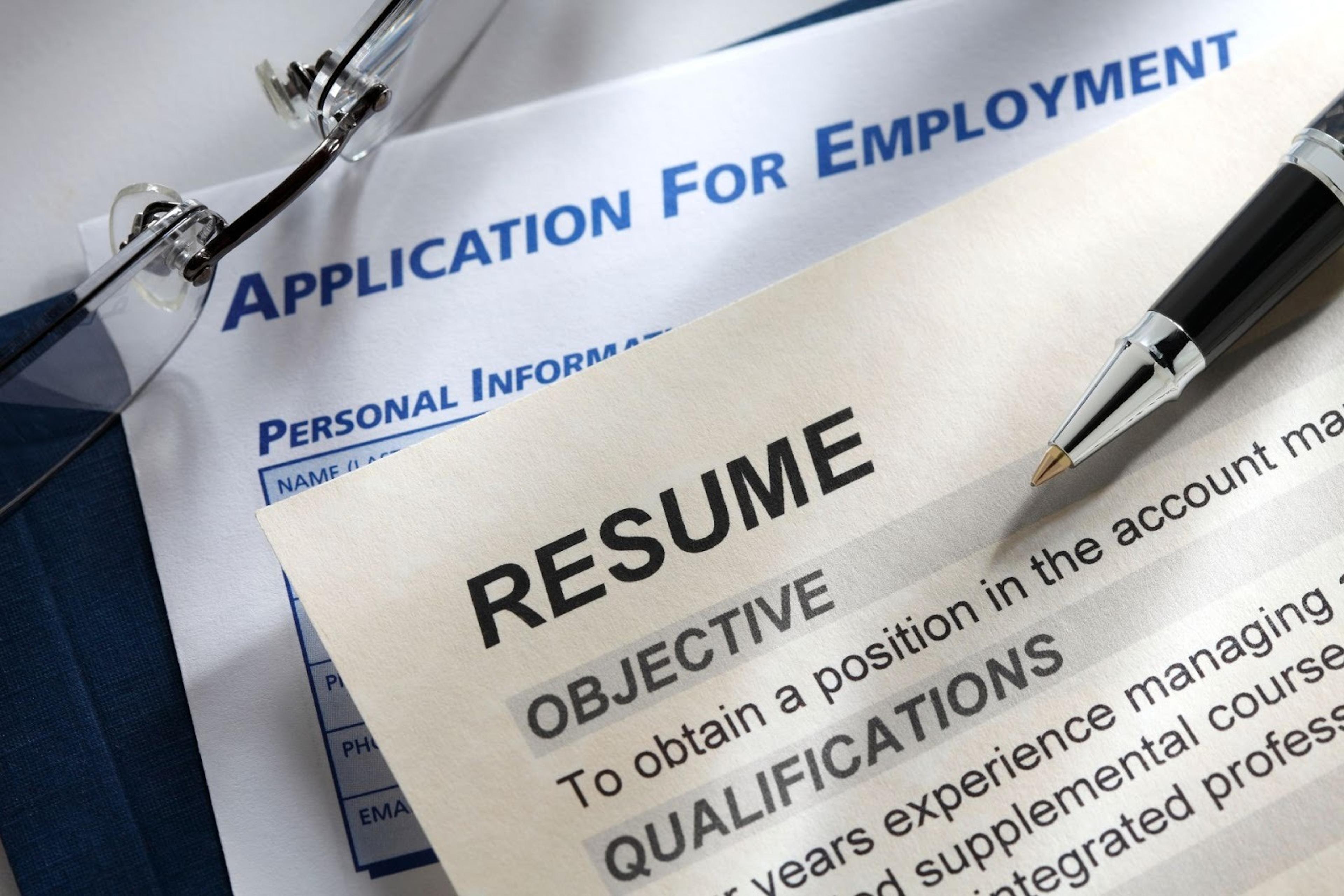How to Land a Google BizOps Role
Break into Google BizOps with insider tips, case prep strategies, and expert guidance. Learn how to stand out and land the role, step by step.
Posted November 19, 2025

Join a free event
Learn from top coaches and industry experts in live, interactive sessions you can join for free.
Table of Contents
If you're aiming for a role in Google BizOps, also known as Business Operations and Strategy, you’re targeting one of the most competitive and versatile paths at the company. These roles sit at the intersection of strategy, data analysis, and cross-functional execution. They’re often described as an internal SWAT team solving the company's thorny business challenges.
But how do you actually land one?
In this guide, we’ll break down the hiring process, what the interviews are really like, and what you can do to stand out, even if you don’t come from consulting, investment banking, or private equity. You’ll hear insights from real candidates, understand what skills matter most, and get tactical advice to land the offer.
Read: Business Operations (BizOps): What it Is & How to Break In
What is Google BizOps?
Google BizOps (Business Operations and Strategy) is a highly selective, high-leverage function that serves as a strategic partner to product, sales, and executive teams across the company. Often described as Google’s internal “consultants,” BizOps teams are embedded within core business units to help solve the most complex and ambiguous challenges the company faces.
Rather than sitting in a silo, BizOps operates across functions and geographies, working hand-in-hand with senior leaders to drive go-to-market, product strategy, and organizational transformation. Think of them as internal accelerators: identifying growth opportunities, unblocking friction, and enabling better, faster decisions through data and structured thinking.
BizOps teams work across:
- Product areas like Ads, YouTube, Cloud, and early-stage Google products
- Functions like Global Sales Strategy, Marketing, and Business Operations
- Regions including New York, NY, San Francisco, EMEA, and APAC markets
Most BizOps roles are generalist by design, meaning you won’t just own one vertical. Instead, you’ll act as a cross-functional operator and strategic advisor, often wearing multiple hats:
- Running point on data analysis that influences the roadmap and resource allocation
- Leading initiatives that span multiple business units
- Collaborating with stakeholders across product, sales, finance, and ops
- Distilling insights and presenting recommendations to senior leaders
At its best, BizOps is where strategy meets execution. You’re not just making decks, you’re working with decision-makers to implement a strategic solution that actually moves the business forward.
Why Google BizOps Roles Are So Competitive
Google BizOps roles consistently attract top-tier candidates from consulting firms, high-growth startups, and elite MBA programs–all for good reason. These roles sit at the crossroads of strategy, operations, and product, offering unmatched visibility and influence across the business. For many, they’re a fast-track into leadership roles or a pivot into functions like product management, corporate strategy, or general management.
So why are they so sought-after?
- High-impact projects - You work on initiatives that directly shape business direction, not just slide decks, but decisions that move the needle.
- Executive exposure - You’re in the room with senior managers, directors, and VPs, often presenting insights or recommendations.
- Career mobility - These roles open doors to multiple Google careers across product, operations, and even investing arms.
- Compensation & growth - Competitive base salary, equity, and structured career development programs make BizOps both lucrative and sustainable.
But this isn’t just a “nice-to-have” role; it’s one of Google’s most selective hiring pipelines. Candidates are often evaluated on both consulting-level structured problem solving and operator-level execution ability.
As one candidate shared: “It was one of the most structured and intense interview processes I’ve been through. Felt like a hybrid of consulting and product roles.”
It’s not enough to be smart, so you have to be sharp, strategic, and ready to build. Let’s break down how to prepare and stand out.
Google BizOps Hiring Process (and What to Expect)
Landing a Google BizOps offer requires navigating one of the most structured and intellectually rigorous hiring processes in tech. It’s designed to evaluate not only what you’ve done, but how you think, communicate, and collaborate under ambiguity.
Here’s what to expect, stage by stage:
1. Resume Screen
The first filter is sharp. Recruiters and hiring managers look for signals of analytical rigor, leadership, and impact, typically through consulting, strategy, or cross-functional roles. A strong academic pedigree or equivalent practical experience can help, but quantified impact is even better.
Expert Tip: Frame achievements around measurable outcomes (cost savings, growth percentages, or key operational metrics).
2. Recruiter Screen
Your recruiter screen will assess fit, motivation, and communication clarity. Expect questions about why Google BizOps, how your background maps to the business operations role, and what kinds of BizOps projects excite you. This is your first opportunity to show strategic awareness and enthusiasm for Google’s mission.
3. Pre‑Interview Prep Calls
If you advance, you may have one or more prep calls, sometimes with a recruiter or former bizops manager. These help you understand the scope of the role, the types of case interviews you’ll face, and what role-related knowledge to brush up on. Take these seriously; recruiters often share subtle hints about what each interviewer values.
4. The Interview Rounds
Most candidates face two rounds of interviews, each consisting of one to two 45‑minute sessions. Here’s what they cover:
- Case Interviews - You’ll tackle open‑ended business problems drawn from real Google scenarios like evaluating a go‑to‑market strategy, improving an internal process, or sizing an emerging opportunity. They test your structured problem-solving, data intuition, and creativity under pressure.
- Behavioral Interviews - Expect “Tell me about a time…” questions that probe collaborative skills, stakeholder influence, and how you’ve solved problems across cross‑functional teams.
- Role‑Related Knowledge (RRK) - Interviewers test your understanding of how businesses operate, market dynamics, growth levers, and how to translate data into action. You’ll be expected to demonstrate sound judgment and a strong business lens.
- Analytical Assessments - Some interviewers will dig deeper into your comfort with data analysis, spreadsheets, or basic modeling. Less about technical skills, more about logical reasoning and clarity of thought.
You’ll likely meet a mix of interviewers: a bizops manager, a hiring manager, and a peer or senior leader from another function. Each evaluates a different core trait: general cognitive ability, Google values alignment, and strategic thinking.
Insider Insight: Google looks for candidates who balance analytical horsepower with humility and collaboration. Being right matters less than being rigorous, clear, and open‑minded in your reasoning.
What the Case Interviews Are Like
Google BizOps case interviews draw heavily from consulting-style formats, but with a distinctly tech-forward twist. Rather than structured, data-heavy prompts, expect open-ended, ambiguous scenarios pulled from real business contexts at Google. You might be asked to evaluate whether to scale a new initiative, identify bottlenecks in an internal workflow, or recommend a pricing model for an emerging market product.
As one candidate shared: “I was asked how I’d evaluate whether to scale a pilot project. No data provided, just ‘how would you structure your thinking?’”
These interviews test your structured problem-solving, not your industry knowledge. Interviewers want to see how you break down ambiguity, communicate tradeoffs, and apply strategic thinking in real time. Strong answers focus on clear, logical structuring (top-down, MECE), strategic use of frameworks without sounding scripted, transparent assumptions and prioritization, and alignment with the Google strategy, values, and scale.
You won’t be expected to solve every problem perfectly. But you will be expected to think clearly, navigate ambiguity, and explain your rationale like someone who belongs in the room with senior leaders.
Use mock interviews to practice under pressure. Want help? Book a 1:1 coach with Google BizOps experience.
What Google Really Looks for (Beyond the Resume)
While many successful BizOps candidates come from consulting, venture capital, or top-tier MBA programs, Google’s hiring philosophy goes deeper than pedigrees. What truly sets candidates apart is their ability to think strategically, collaborate cross-functionally, and drive impact in ambiguity.
Here’s what interviewers are really looking for:
- Structured communication and compelling storytelling - Can you explain complex ideas simply and influence without authority?
- Proven problem-solving under real-world constraints - Have you actually moved the needle, not just analyzed the problem?
- Experience in ambiguous, high-ownership environments - Startups, small teams, new markets, anywhere you’ve had to figure things out without a playbook.
- A strategic lens - Can you zoom out, connect the dots, and anticipate second-order consequences?
- Cross-functional collaboration - BizOps is deeply embedded. You need the emotional intelligence to partner with product, sales, ops, and leadership.
Insider tip: Google interviewers often say they value “equivalent practical experience” just as much as big-name credentials. If you've built something from scratch, owned a cross-functional initiative, or made strategic decisions with limited data, that counts.
You don’t need the perfect resume. But you do need to prove that you can think like an owner, communicate like a strategist, and execute like an operator.
If you’re aiming for a high-impact BizOps role, whether at a top tech company, fast-growing startup, or strategic ops team, Angela Winegar’s Land a BizOps Offer: Getting Started package is designed to accelerate your path and set you up to succeed from day one.
How to Stand Out in the Interview Process
Landing a Google BizOps offer is about standing out in a pool of high-performing candidates. Everyone interviewing is smart. What differentiates the finalists is how clearly they communicate, how deeply they understand the role, and how convincingly they demonstrate impact and strategic thinking. Here's how to prepare like a top-tier candidate:
Refine Your Resume with Strategic Intent
Your resume is more than a summary of what you’ve done; it’s your first case interview. Make it clear that you're not just an operator, but a strategic thinker. Highlight initiatives where you led change, influenced direction, or improved outcomes through data analysis, process optimization, or business insights.
Show how you’ve contributed to cross-functional success, especially in ambiguous or high-stakes environments. Every bullet point should communicate results, not responsibilities.
Master the Right Kinds of Interview Questions
Google’s case and behavioral interviews are designed to assess how you think, not just what you know. Go beyond generic prep and tailor your practice to tech-relevant business problems: go-to-market strategies, product monetization, operational inefficiencies, and ambiguous growth challenges. Use resources like Leland’s case interview prep guide, Google’s official careers content, and mock interviews with coaches who’ve seen the real thing.
The goal isn’t to memorize frameworks but to practice clear thinking, structured problem-solving, and persuasive communication under pressure.
Show That You Understand Google’s DNA
Google isn’t just hiring for skills; they’re hiring for fit. Throughout the process, you’ll be assessed on how well your mindset and working style align with Google’s values: user-first thinking, ownership, collaboration, and long-term impact. Be ready to speak to how your past experience maps to these principles.
Have examples that show not just what you did, but how you made decisions, navigated complexity, and worked across teams with empathy and bias for action.
Compensation and Career Path at Google BizOps
Google’s Business Operations compensation reflects both the strategic impact of the function and the caliber of talent it attracts. Roles are benchmarked against top consulting firms and tech strategy positions, with a total rewards package designed to reward performance and long‑term growth.
Below is a breakdown of what candidates can expect, plus how the career trajectory typically unfolds once you’re in.
| Category | Details & Expert Insight |
|---|---|
| Base Salary | Highly competitive (up to $189K to over $615K annually for experienced roles) within the tech strategy market, typically on par with post‑MBA consulting roles. Compensation varies by level and location (with New York, NY, and the Bay Area commanding top bands). Expect strong salary growth as you move from Associate to BizOps Manager. |
| Annual Bonus | Performance‑based bonuses usually range from 10–20% of base salary. Strong performers, especially those driving measurable impact on key projects or cross‑functional initiatives, often land at the higher end of the range. |
| Equity (RSUs) | Annual equity grants make up a meaningful portion of total compensation, aligning you with the company’s long‑term value creation. This is one of the most compelling parts of Google’s career development offering, especially compared to traditional consulting or finance roles. |
| Career Progression | Typical upward mobility looks like: BizOps Associate → Senior Associate → BizOps Manager → Strategy Lead / Senior Manager. High performers can move into broader roles across other strategy teams, product strategy, or corporate development. |
| Lateral Pathways | BizOps alumni frequently pivot into product management, marketing strategy, go‑to‑market operations, or people management. The role’s breadth and visibility make it an ideal launchpad for leadership. |
| Long‑Term Trajectory | Many professionals leverage BizOps as a rotational platform; some advance to senior leaders overseeing multi‑function teams, others transition to venture capital, private equity, or even entrepreneurial paths. Google encourages mobility across many Google careers, valuing those who can apply a strategic lens to new contexts. |
| Why It’s Strategic | Unlike typical operations roles, BizOps combines structured problem-solving with data analysis, influencing company‑wide decisions. You’re rewarded not just for execution, but for shaping the strategic direction of the business. |
What Real Candidates Say (Unfiltered)
If you want the unpolished truth about what it takes to land a Google BizOps offer, the r/MBA thread offers a valuable behind-the-scenes perspective from candidates who’ve been through the process.
One consistent theme? Google isn’t just hiring polished resumes; it’s hiring problem-solvers who thrive in ambiguity.
“They want people who’ve worked on key projects with real ambiguity.”
Candidates who stood out weren’t just analysts or operators; they had owned initiatives, built structure where there was none, and influenced outcomes across multiple business units.
“It helps to show how you’ve worked across multiple business units and influenced decision-making.”
While a background in consulting, investment banking, or private equity can help, especially when it comes to communicating clearly and structuring problems, several successful candidates came from non-traditional backgrounds. The differentiator? A strategic mindset, ownership, and evidence of driving impact in messy, high-stakes environments.
“Background in investment banking or private equity isn’t required, but it helps.”
And perhaps most notably, the best-prepared candidates didn’t wing it. One user shared that they did 15+ mock interviews before feeling confident enough to walk into their final rounds. That level of preparation isn’t extreme; it’s standard for a top-tier role like BizOps.
Important Notes on EEO, Location, and Legal Requirements
Google is an Equal Employment Opportunity and Affirmative Action Employer. That means the company is committed to fair and equitable hiring, and does not discriminate based on:
- Race, color, or national origin
- Religion or creed
- Sex, gender identity, or sexual orientation
- Age, disability, or veteran status
- Marital status or family status
- Genetic information or medical condition
In accordance with U.S. law and local regulations, Google also considers qualified applicants with criminal histories, consistent with legal requirements such as the San Francisco Fair Chance Ordinance and similar policies in other jurisdictions.
Note: If you need assistance or accommodations during the hiring process due to a disability or medical condition, Google encourages you to request them as they offer inclusive, accessible candidate support.
Location-wise, BizOps roles are typically available in major hubs such as New York, NY; the San Francisco Bay Area; Austin; Chicago; and select international offices. Some positions may offer hybrid or remote flexibility, depending on team and function.
Final Tips to Land the Role
- Get insider feedback. A former BizOps manager or recruiter can help refine your resume, cases, and communication fast.
- Practice out loud. Simulate real interviews. Focus on clarity, structure, and storytelling under pressure.
- Show exec-level impact. Highlight how you’ve influenced senior stakeholders, not just worked on a team.
- Connect data to strategy. Demonstrate how you’ve used analysis to drive decisions, not just insights.
- Make your experience relevant. Map your background directly to the problems Google BizOps teams solve.
Final Thoughts: Why Google BizOps and Why You?
Landing a Google BizOps role isn’t just about passing interviews. It’s about proving that you can solve complex, high-stakes problems with structure, clarity, and strategic judgment—while collaborating across teams and influencing at the highest levels.
What makes these roles so compelling also makes them competitive: you’re stepping into a function that shapes product direction, drives operational excellence, and informs executive decision-making across the company. Whether you come from consulting, startups, finance, or an entirely different path, what matters most is your ability to think like an owner, lead through ambiguity, and deliver meaningful impact.
If you’re serious about this path, don’t prepare alone. The best candidates work with former Google interviewers, BizOps managers, and coaches who know exactly how to help you stand out. Whether you need resume feedback, mock interviews, or insider prep, work 1:1 with a top BizOps coach who’s helped others land roles on Google’s BizOps team. Also, check out Leland+ for Business Operations & Strategy for more insights and resources!
See: Top 10 Business Development Coaches and Top 10 Business Mentors
Read next:
- Business Operations Vs. Business Development: What's the Difference?
- Business Strategy vs. Operations: Key Differences & What to Know
- Business Operations Resume Guide (With Examples & Template)
- Business Operations Interview Guide: Questions, Tips, & How to Prep
FAQs
What’s the difference between Google BizOps and strategy roles?
- BizOps is often more executional and embedded, whereas other strategy teams may be more centralized and long-range.
Do I need consulting experience to get into BizOps at Google?
- Not necessarily. Google values equivalent practical experience, especially if you’ve worked on ambiguous problems or launched projects across teams.
How many interviews are there for a BizOps role?
- Typically 4–6 interviews, often including case interviews, behavioral rounds, and hiring manager conversations.
What skills are most important for BizOps roles?
- You must have your problem-solving, communication, and collaborative skills developed, as well as a sharp strategic lens. You'll often act as an internal consultant and operator.
























